GOLD Learning Tongue-tie Online Symposium 2021
Welcome to the GOLD Learning Tongue-tie Symposium for 2021! This popular program provides the latest research, perspectives and best practice when working with infants with oral restrictions and their families. As our understanding of oral restrictions grows there's always something new to learn!
We're excited to have you join us for amazing presentations that will leave you feeling more confident and armed with clinical skills that you can put into practice right away to help the families in your care. This program is approved for 10 CERPs (10 L-CERPs) and Dietetic CPEUs.
Register Today - Presentation Recordings Are Now Online!
Looking to sign up as a Group of 10 or more? Contact us at [email protected] to learn more or submit your group registration.
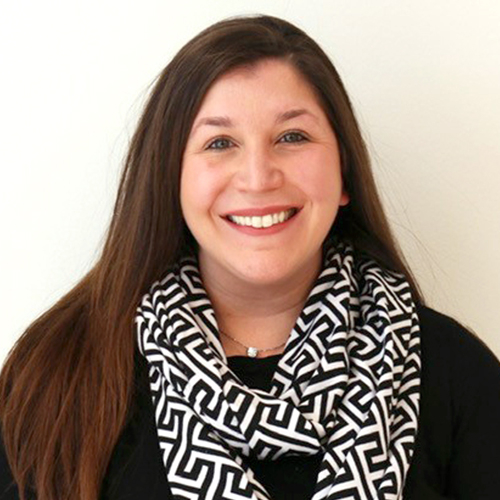

Rebecca Russo Hill, PhD, DNP, RN, FNP-C earned her BSN from the University of Rhode Island in 2006, her MSN and post-master’s certificate in nursing education from Duke University in 2010, her DNP from Duke University in 2013 and her PhD in Nursing from Boston College in 2021. Rebecca is a family nurse practitioner and certified as a lactation counselor and nurse educator. She is the current program director of prelicensure nursing programs at the MGH Institute of Health Professions in Boston, MA.
Rebecca’s dissertation research focused on symptoms of problematic feeding in infants with tongue-tie. She will collaborate with other health profession disciplines to advance the state of the science surrounding infant feeding, tongue-tie, and frenotomy. Her dissertation research has provided the foundation for a lifelong program of research to improve health care for mothers and their children. She is currently studying the effects of frenotomy on non-nutritive sucking mechanics.
Rebecca is an active member of several professional organizations including the American Nurses Association (ANA), American Association of Nurse Practitioners (AANP), the National League for Nursing (NLN) and Sigma Theta Tau International (STTI). Rebecca resides in Massachusetts, raising three children alongside her husband Jonathan.
2. Identify maternal symptoms that may be associated with infant tongue-tie in the breastfeeding dyad.
3. Describe symptoms of problematic feeding for infants diagnosed with tongue-tie.
Despite the low-level of evidence supporting the correction of tongue-tie for breastfeeding problems, recognition and treatment has increased substantially over the last 20 years. Recent systematic reviews have highlighted the findings from available research, the gaps in the science, and recommendations for future research. This presentation presents the results of a review of original research on tongue-tie and its treatment via frenotomy. Learn more about the maternal symptoms and signs of problematic feeding that may be associated with tongue-tie in the infant and what the available research tells us about recommendations for infants with tongue-tie.
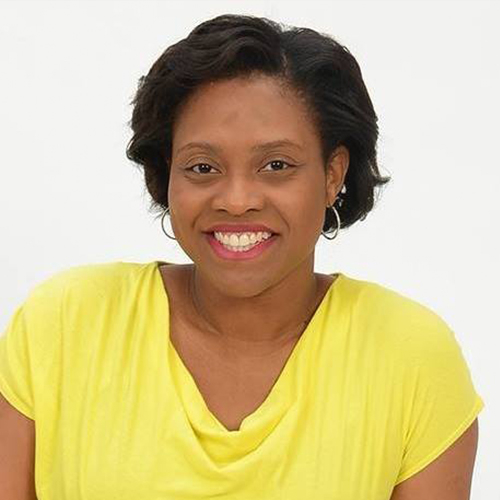

Karese, like many parents, suffered in silence while her children struggled with the symptoms of undiagnosed sleep and breathing issues. One visit to a pediatric dentist changed the trajectory of their lives. Already a Registered Dental Hygienist (RDH), Karese, trained with Sandra Holtzman, Lois Laynee and Sarah Hornsby to establish her orofacial myology knowledge. With this initial training and numerous others, in a few short years she has not only resolved all her children's issues, but helped hundreds of patients, children and adults alike, discover how great life can be functioning on full. Her private practice, The Myo Spot is now a leader in the quest for myofunctional therapy awareness and public education. Her latest published book, Accomplished, delves into how to sleep better, eliminate burnout, and execute goals. Karese's mission is to transform and positively impact as many households as possible through dynamic breath, brain and body work.
1. Describe the relationship between tethered oral tissues and associated impacts on the breastfeeding dyad.
2. Describe the essential role anticipatory care has on achieving desirable outcomes for improving oral function for breastfeeding.
3. List members of the interdisciplinary team for post revision active wound management and rehabilitation.
4. Describe complications of poor active wound management and understand the difference between reattachment and suboptimal wound healing.
Anticipatory care plays an essential role in achieving desirable outcomes after the revision of tethered oral tissues. Tethered oral tissues are a common and underdiagnosed problem that impacts potentially 10% of the United States population. Lack of a universally accepted approach to diagnosis, treatment, and management creates confusion for the public and prohibits optimal care. This lecture dissects current research, trends, and information to present a deeper connection between oral function and anatomy during breastfeeding and tethered oral tissue revision management. Discover the interdisciplinary approach to restoring a functional and healthy breastfeeding relationship to the dyad and the critical importance of setting families up for success by providing adequate anticipatory care and guidance prior to revision.
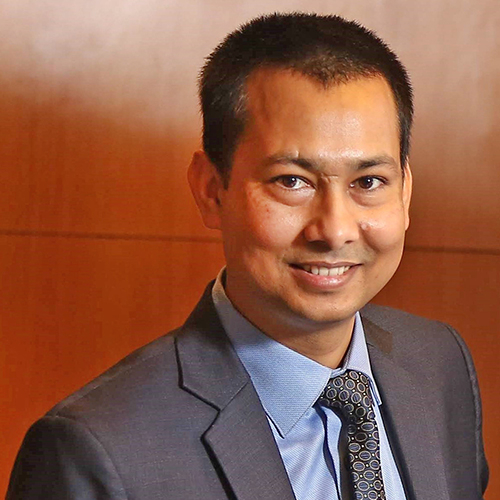

Dr. Ankur Bio Update - Dr. Kumar Ankur, MD, DNB is working as an Associate Director & Head of the Department of Neonatology at BLK MAX Super Speciality Hospital Delhi, India. He has been working in the field of neonatology with private and non-goverment organisations for improving neonatal healthcare in the country. He is the national faculty and trainer for FBNC (Facility based neonatal care), Neonatal Resuscitation, Kangarroo Mother Care (KMC) and the national assessor for Neonatology Fellowship accreditation programme of India. He has been invited as an expert speaker, faculty, chairpersons for various national and state level conferences and workshops. He has many publications in national & international journal and authored many chapters, guidelines published by Indian Academy of Pediatrics & National Neonatology of Forum Delhi & India. He is also the co-editor of Handbook of Neonatal Clinical Practices. He is also running training program in neonatal Fellowship for postgraduate students & neonatal nurses. Currently he is also the Secretary of prestigious National Neonatology Forum, Delhi. National Neonatology Forum (NNF) is a strong and large body of more than 8000 neonatologists across India and abroad. NNF has been actively involved in advocacy, policy making, research and ensuring quality health care to newborn for the last 4 decades. He had been past Secretary (2014) & President (2018) of Indian Academy of Pediatrics (IAP), Central Delhi Branch.
Topic: Tongue-Tie and the NICU: A Neonatologist Perspective - [View Abstract]
1. Describe the epidemiology & Indian Perspective of tongue-tie.
2. Recognize when tongue-tie can potentially cause problems.
3. Describe diagnostic features & what to look for in tongue-tie in NICU infants, especially with hypernatremic dehydration or jaundice.
4. Identify possible treatment for the late preterm baby with suspected tongue-tie.
5. Describe nonsurgical treatment options and the importance of looking at the baby holistically rather than just the oral cavity.
6. Describe how to determine when surgery/frenotomy is necessary.
Tongue Tie is an interesting clinical subject with extreme variability in understanding among lactation consultants, neonatologists, pediatricians, speech therapists, pediatric surgeons, and dental/oral surgeons. There is still no consensus on diagnosis and mode of treatment. However, in recent years there seems to increase reliance on cutting the tie despite the lack of robust evidence. As clinicians, we should always give an unbiased approach towards any neonate's feeding-related problem. Holistic systems like simple bodywork and prolonged skin-to-skin contact, and family involvement can often resolve infant feeding issues. Family-centered care (FCC), based on collaborative participation of the family and a team of health care providers, is found to increase infants' well-being in neonatal critical care units. Our own postgraduate student did her dissertation To Determine the Prevalence of Lingual Frenulum in Infants ≥ 1800 grams of Birth Weight Affecting Breastfeeding (Submitted for Publication). We shall be sharing the Indian data and providing more information about the prevalence of tongue-tie in the NICU, how to distinguish between tongue-tie and other common feeding issues in neonates and the importance of holistic care.
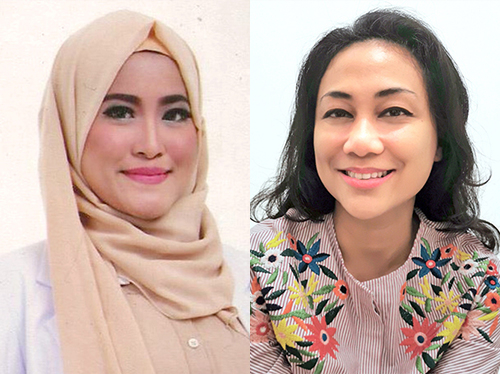

Okky Nafiriana, MD is a member of Praborini Lactation Team, Indonesia.
She believes breastfeeding is the best way to feed and nurture baby.
But breastfeeding not always comes easy. Experienced breastfeeding her 2 daughters who were born with tongue and lip tie, made her realize the problems came with the ties and support frenotomy.
She currently works as a lactation counselor in Permata Depok Hospital and Puri Cinere Hospital, Indonesia, where she meets parents and educates the benefit of breastfeeding. She loves to study and currently pursued her dreams to deepen her knowledge in lactation.
Ratih Ayu Wulandari, MD, IBCLC is a
member of Praborini Lactation Team, Indonesia.
She believes breastfeeding is the best way to feed and nurture baby, therefore she became a breastfeeding counselor in 2012 and then IBCLC in 2014.
Experienced breastfeeding her three tongue-tied babies, she understand the pain and support early frenotomy.
She is practicing frenotomy for tongue-tie and lip-tie in Puri Cinere Hospital Depok Indonesia and a private practice. Her publications are including articles for international journal and books for mothers. Japan society of ADEL acknowledges her as Specialist of ADEL (Ankyloglossia with Deviation of Epiglottis and Larynx).
1. This presentation will help delegates to understand what marasmus and kwashiorkor are and how they impact baby’s growth and development.
2. This presentation will help delegates to understand what ankyloglossia is and how it may impact infant feeding.
3. This presentation will help delegates to understand how simple frenotomy and supplementation with pasteurized human donor milk can help a baby to recover from illness and reach good development even in cases of severe malnutrition.
Successful breastfeeding depends on an infant’s latching onto the mother’s breast correctly. A poor latch will cause insufficient milk transfer that will cause poor growth. Each type of mammals produces different components of milk which make it species specific, which adjust to their needs, growth rate and breastfeeding habits. Human breast milk has many benefits for human babies because it contains various substances both as nutrition and as protection.
The authors present two infants who suffered ankyloglossia, which hindered the baby’s ability to breastfeed and eat solid food. These babies were diagnosed with marasmus and kwashiorkor (severe malnutrition). After revision of both the lip- and tongue-ties, supplementation with pasteurized human milk donor, and good complimentary feeding the babies finally reach an optimal growth and development. Learn more about how these two cases were managed to bring the babies back to health.
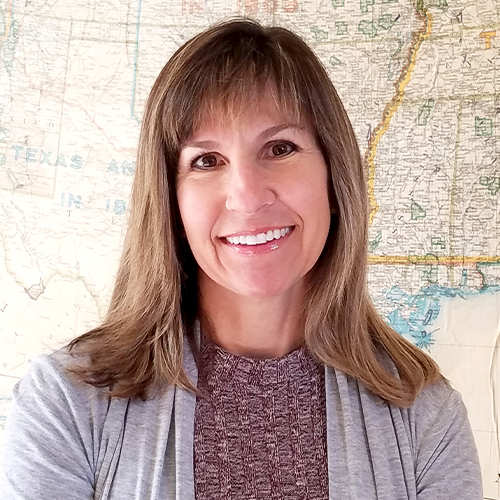

Upon becoming a mother and struggling through breastfeeding both of her babies, René first began supporting breastfeeding as a peer counselor, with a desire to help others as she was helped, and continues to support families in this way. She became an IBCLC and started her private practice, First Food For Baby, to provide professional lactation care a few years later. Recognizing the need to serve underinsured and marginalized families, she founded the Phoenix based 501(c)(3) non-profit organization, American Breastfeeding Foundation, in 2020 that will one day reach and support families nationwide, facilitating specialized care for underserved populations.
René loves helping families through their unique breastfeeding journey, providing guidance to avoid complications and empowering them to exceed their goals. She welcomes the challenge this brings, from the complexities of airway issues to feeding position experimentation. She cherishes the loving interactions between babies and their parents. She considers it an honor to be trusted with each precious new life and to witness the intimacy and beauty that is breastfeeding. She bases her foundational knowledge on evidence-based data and research but realizes that the human experience she’s has learned over the past 25 years is equally important.
1.Describe how a baby breathes directly influences growth, development and overall health.
2. Recognize sleep disordered breathing symptoms exhibited.
3. Describe some ways to begin to change the course of breathing and airway issues, including frenotomy.
This presentation is focused on infant airway as it relates to tongue-tie. Participants will learn to recognize subtle, unhealthy deviations from normal, healthy breathing, including general tongue presentation and breathing patterns (especially before and after tongue-tie release). This is important for many reasons but could be helpful in contributing to optimal frenectomy outcomes and avoiding regression. Additionally, the importance of identifying at risk infants to help avoid common misdiagnosis and labelling that is more often actually struggle with breathing and sleep will be discussed, all of which ultimately optimize breastfeeding outcomes and health for the lifespan.
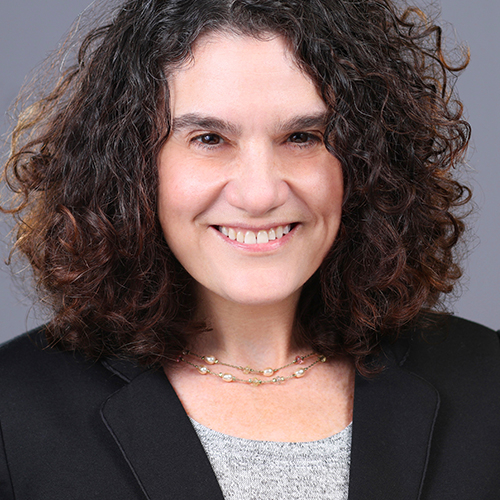

Leslie has been providing lactation support in Central New Jersey for over 18 years - as a La Leche League (LLL) leader since 2002, an IBCLC at Mercer County WIC from 2014 to 2016, and as a private practice IBCLC since 2011.
Leslie grew up in New York and New Jersey. She graduated from Cook College/Rutgers with a BS in Biochemistry, and from Rutgers University/UMDNJ with a PhD in Biochemistry and Molecular Biology. Leslie's difficulties with early breastfeeding, the help she received from LLL, and challenges with returning to work laid the foundation for her understanding of the importance of skilled and compassionate lactation and infant feeding support.
Topic: Untangling the Big Picture of Tongue-Tie Assessment - [View Abstract]
1. Explain the process for assessing infant oral structure and motion and its impact on feeding.
2. List the components of a complete assessment that extend beyond the oral cavity.
3. Describe the ongoing assessments that are needed through the course of care to allow for adjustments in the care plan.
IBCLCs assess chest/breast and bottle feeding skills, and infant’s oral and body structures and motions that contribute to, or inhibit, the process of feeding as well as post-feeding comfort. When infants present with feeding dysfunction, the root of the issue is often tight frenulum (ties), or asymmetric/tense muscles/fascia, or both. IBCLCs help families navigate the differential assessment of feeding dysfunction, and at the same time support the family’s feeding and milk supply choices. This presentation will examine the bigger picture of assessment when ties are suspected. Because a narrow focus on only the oral cavity can negate other contributing factors, initial and follow-up assessments need to include not just what is going on in the infant’s mouth, but also take into account the infant’s body as a whole, family dynamics, feeding goals, and the creation of a manageable plan for the family. IBCLCs aid with oral/body exercises, referrals for oral evaluations and/or bodywork, help with pre/post frenotomy oral skills, and more - helping to adjust the care plan as infant feeding skills and parent goals grow and change. Developing the skill of big picture assessment is crucial in order to determine the best course of clinical care, meet the families needs, and allow for the best possible outcome.


Catherine Watson Genna BS, IBCLC is an International Board Certified Lactation Consultant in private practice in New York City. Certified in 1992, Catherine is particularly interested in helping moms and babies breastfeed when they have medical challenges and is an active clinical mentor. She speaks to healthcare professionals around the world on assisting breastfeeding babies with anatomical, genetic or neurological problems. Her presentations and her writing are enriched by her clinical photographs and videos. Catherine collaborates with Columbia University and Tel Aviv University Departments of Biomedical Engineering on research projects investigating the biomechanics of the lactating nipple and various aspects of sucking and swallowing in breastfeeding infants. She is the author of Selecting and Using Breastfeeding Tools: Improving Care and Outcomes (Praeclarus Press 2009) and Supporting Sucking Skills in Breastfeeding Infants (Jones and Bartlett Learning 2008, 2013, 2017) as well as professional journal articles and chapters in the Core Curriculum for Lactation Consultant Practice and Breastfeeding and Human Lactation. Catherine served as Associate Editor of the United States Lactation Consultant Association’s official journal Clinical Lactation for its first seven years.
Topic: Breastfeeding Strategies for Tongue-tied Infants - [View Abstract]
Topic: Critical Assessment of Apparent Tongue-Tie - [View Abstract]
Topic: Introduction to Cervical Auscultation - [View Abstract]
Topic: Lactation Support for Infant Biomedical Challenges - [View Abstract]
Topic: Organization of tongue movements before and after frenotomy for posterior tongue-tie: an Ultrasound analysis - [View Abstract]
Topic: Positioning and Latch for Breastfeeding - [View Abstract]
Topic: Ultrasound Analysis of Sucking: Tongue-Tie and Confounders - [View Abstract]
Topic: Using Breastfeeding Supplementers - [View Abstract]
1. Discuss the importance of both a deep, stable latch and the infant’s own tongue mobility in normal sucking.
2. Describe how the anterior and mid-tongue move differently during normal breastfeeding.
3. List two differences between tongue movements in tongue tied infants before frenotomy and those of normal infants.
4. Discuss the differences in tongue movements in tongue-tied infants versus those with congenital muscular torticollis.
Ultrasound is a useful tool in our quest to understand both normal sucking and breastfeeding impairments. Research depends on both accurate classification of subjects and breastfeeding best practices. This webinar presents findings from our studies of the organization of tongue movements in space and time during breastfeeding using an objective methodology, highlighting some important considerations when conducting or assessing research.


Michale is an Integration visionary with a discerning view of the ancient and an eye on the future. She created one of the first on site integrated care clinics for Tongue Tie treatment 10 years ago that included Lactation support, Body nervous system and movement work, Laser tongue tie release and cranio-facial anticipatory growth guidance. She currently mentors Integrative practitioners in Wayfinding methods which allow practitioners to tap into their unique gifts and learn to incorporate them into practice.
1. The attendee will describe a working definition of trauma.
2. The attendee will be able to describe how to apply compass concepts to tongue-tie care.
3. The attendee will be able to describe a 'map' to the terrain of trauma with initial sequences of care.
The field of tongue-tie treatment is rapidly changing, and great strides have been made over the years to create sequencing of care to ensure predictable outcomes related to the achievement of optimal oral function after tongue-tie release. Despite this, there are times when a frenectomy does not seem to “work”, “help” or make a significant difference. This is frustrating for families and can leave health care professionals wondering what to do next. This presentation will discuss screening for trauma as a way to improve frenectomy success. Learn more about the impact of collective trauma on the infant’s nervous system and the importance of the timing of frenectomy along with the sequencing of pre, intra and post-op habilitative care to increase outcome success.


Melissa Cole is a board-certified lactation consultant, neonatal oral-motor assessment professional and clinical herbalist in private practice. Melissa is passionate about providing comprehensive, holistic lactation support and improving the level of clinical lactation skills for health professional. She enjoys teaching, researching and writing about wellness and lactation-related topics. Her bachelor’s degree is in maternal/child health and lactation and her master’s degree is in therapeutic herbalism. Before pursuing her current path, Melissa’s background was in education and cultural arts, which has served her well in her work as a lactation consultant and healthcare educator. She loves living, working and playing in the beautiful Pacific Northwest with her 3 children.
Topic: Beyond Fenugreek: An Individualized Approach to Dietary and Herbal Galactagogues - [View Abstract]
Topic: Beyond the Basics of Latch: Support Strategies for Helping Babies when the Basics Aren’t Enough - [View Abstract]
Topic: Common Infant Digestive Health Concerns and Useful Support Strategies - [View Abstract]
Topic: Connection and Care: Virtual Support for Tongue-Tied Infants - [View Abstract]
Topic: Feeding is Movement: Activities for Supporting Optimal Infant Oral Function - [View Abstract]
Topic: Infant Gut Health: Common Concerns and Useful Support Strategies - [View Abstract]
Topic: Infant Oral Assessment: Exploring Anatomy and Function Beyond the Frenulum - [View Abstract]
Topic: Low Milk Production Detective Work: Assessment and Care Plan Considerations - [View Abstract]
Topic: New Thoughts on Infant Pre and Post-Frenotomy Care - [View Abstract]
Topic: Placenta Medicine as a Galactogogue: Tradition or Trend? - [View Abstract]
Topic: Thinking Critically About the Use of Clinical Lactation Tools - [View Abstract]
Topic: Will It Hurt? Frenotomy Aftercare Strategies to Optimize Healing Outcomes for the Newborn - [View Abstract]
1. Describe strategies to gather clinically relevant information when working virtually.
2. Describe techniques to assess oral anatomy and function when working remotely.
3. Discuss documentation, teamwork, and referral strategies for virtual consulting.
Providing virtual care has become a reality for many lactation professionals. How can we best consult families of tongue-tied babies virtually? How do we get the visual and functional information we need to guide our care when we are ‘hands-off’? This session will discuss strategies for health professionals working remotely including assessment, documentation, care plan formation, teamwork, and the referral process. While different than in-person consultations, virtual connection and excellent care for tongue-tied babies and their families is possible! Learning to adapt our practice style, gather information digitally, and pivot with the times is vital for our role in providing comprehensive lactation support virtually.
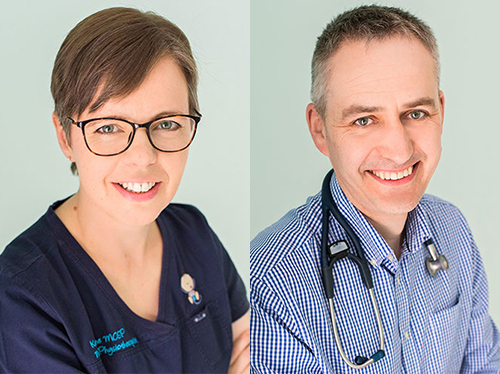

Kate is a Chartered Physiotherapist who works with infants, children and adults with oral myofunctional disorders.
She is Co-Director of the National Tongue Tie Centre where herself and her husband Justin, Consultant Paediatrician, lead a Team offering specialist services in a dedicated family centred environment.
Having trained at the University of Liverpool, she worked in both Leeds and Southampton, where she led and delivered the regional neonatal service for pre-term and high-risk infants, before moving to Ireland. She is a member of the Irish Society of Chartered Physiotherapists and is an IBCLC.
Kate has travelled many times over the last few years, mainly to the USA, to undertake further training in Orofacial Myofunctional Therapy, Craniosacral Therapy and Autonomic Nervous System Therapeutics.
Justin is a Consultant Paediatrician and a Fellow of the Royal College of Paediatrics and Child Health (FRCPCH) and a Fellow of the Faculty of Paediatrics, Royal College of Physicians of Ireland and is registered with the Medical Council (Number 171584) under the Specialist Division for Paediatrics.
He has spent thousands of hours on continuing education having attended numerous conferences and courses on tongue-tie, predominantly in the States, in order to be at the forefront of care for infants, children, and adults. He is also a board member of the International Consortium of Ankyloglossia Professionals (ICAP).
Justin's interest in Tongue Tie dates back to 1999 when his first daughter was born. At 5 days old she had her tongue tie divided in Southampton. Six children and four tongue ties later, he returned to Southampton to start his training in how to divide tongue ties himself. He has been treating tongue ties since 2008 and running a dedicated tongue tie clinic since 2010 and established the National Tongue Tie Centre with his wife Kate, Physiotherapist in 2017. Currently, Justin, Kate and the Team would assess and manage Tethered Oral Tissues in over one thousand children and adults each year.
1. Describe what each of the team members brings to the care of the infant and their family.
2. Describe how having a multi-disciplinary team on-site benefits the family.
3. Describe how to manage aftercare in infants who have had a frenotomy.
The management of Ankyloglossia has historically been controversial. To this day, the recognition of what makes a tongue frenulum restrictive such that it is ankyloglossia and how infants should be managed before, during and after surgery still generates debate between the professions involved in their care.
We will take you on our journey from awareness, through training and experience, always striving to optimise management of Ankyloglossia for infants and their families.
Accreditation
CERPs - Continuing Education Recognition Points
GOLD Conferences has been designated as a Long Term Provider of CERPs by the IBLCE--Approval #CLT114-07.
This program is approved for 10 L-CERPs.
Dietetic CPEUs - Continuing Professional Education Units:
Applicable to Dieticians & Nutritionists, this program is approved for 10 Dietetic CPEUs by the Commission on Dietetic Registration - the credentialing agency for the Academy of Nutrition and Dietetics.
If you have already participated in this program, you are not eligible to receive additional credits for viewing it again. Please send us an email to [email protected] if you have any questions.
Tags / Categories
(IBCLC) Clinical Skills, (IBCLC) Education and Communication, (IBCLC) Equipment and Technology, (IBCLC) Infant, (IBCLC) Pathology, (IBCLC) Research, (IBCLC) Techniques, Breastfeeding the Tongue Tied Infant, Differential Diagnosis & Management, Tongue & Lip Tie Assessment
How much time do I have to view the presentations?
- The viewing time will be specified for each product. When you purchase multiple items in your cart, the viewing time becomes CUMULATIVE. Ex. Lecture 1= 2 weeks and Lecture Pack 2 = 4 Weeks, you will have a total of 6 weeks viewing time for ALL the presentations made in that purchase.
- Time for viewing the talks begins once you purchase the product. For Live Webinars & Symposiums, the viewing period begins from when the live event takes place. Presentations can be accessed 24/7 and can be viewed as many times as you like during the viewing period.
What are bundled lectures?
- Presentations may be available individually or via a bundled package. Bundled lectures are a set of lectures that have been put together based on a specific category or topic. Some lectures will be available in both individual and lecture form, whereas others will be available only via a bundled lecture pack.
Will there be Handouts?
- YES! Each lecture comes with a PDF handout provided by the Speaker.
Some lectures include a Q&A, what does that mean?
- During our online conferences, presentations that occur live are also followed by a short 15 minute Question & Answer Session. The Speaker addresses questions that were posted by Delegates during the presentation. We include the recording of these Q&A Sessions as a bonus for you.
How can I receive a Certificate?
- If this presentation offers a certificate, once you are done viewing the lecture or the lectures within a bundle, submit your attendance record in order to be able to download your certificate. You'll be able to see which credits are offered for the lecture by hovering over the "Credits Available" link within the "Speakers & Topics" tab.
Professionals that selected this package also viewed

|
|

|











